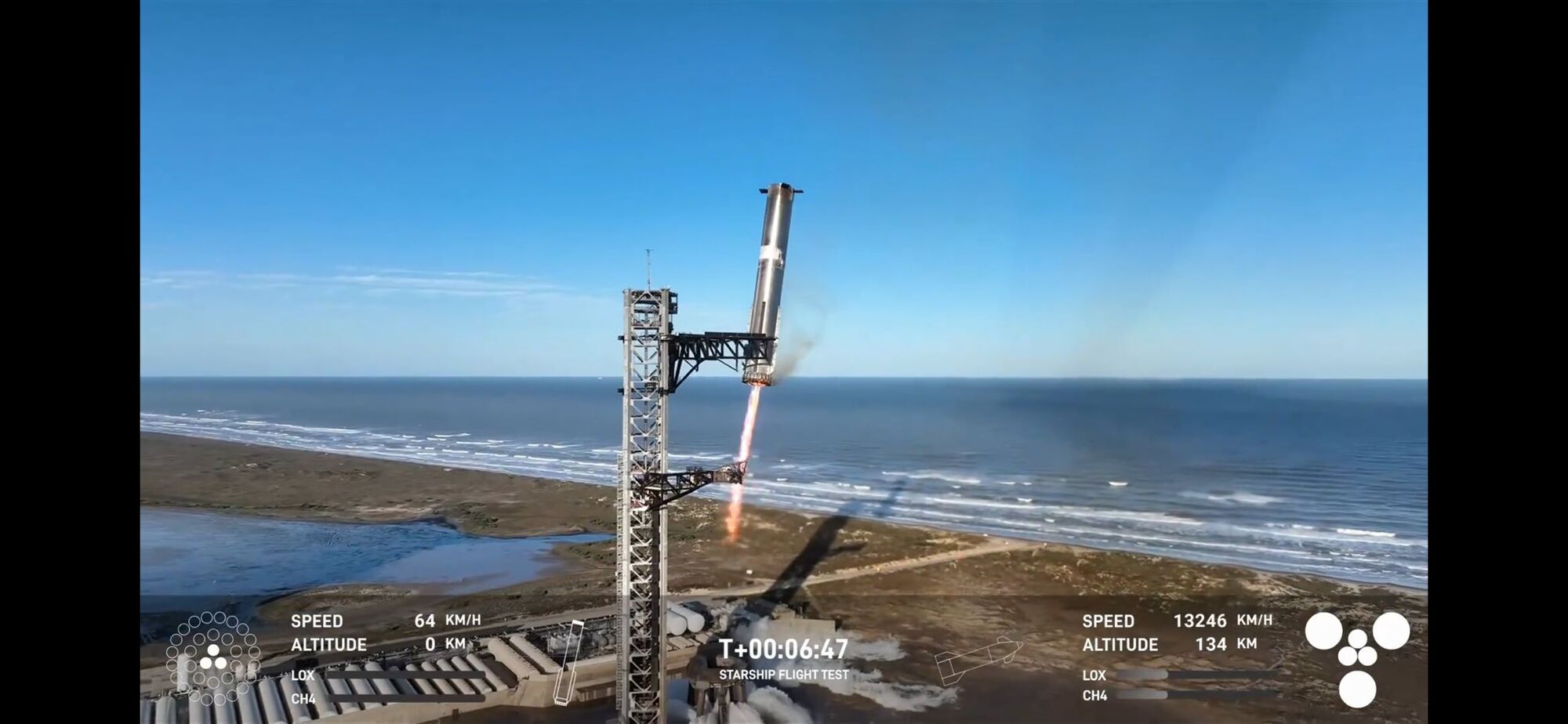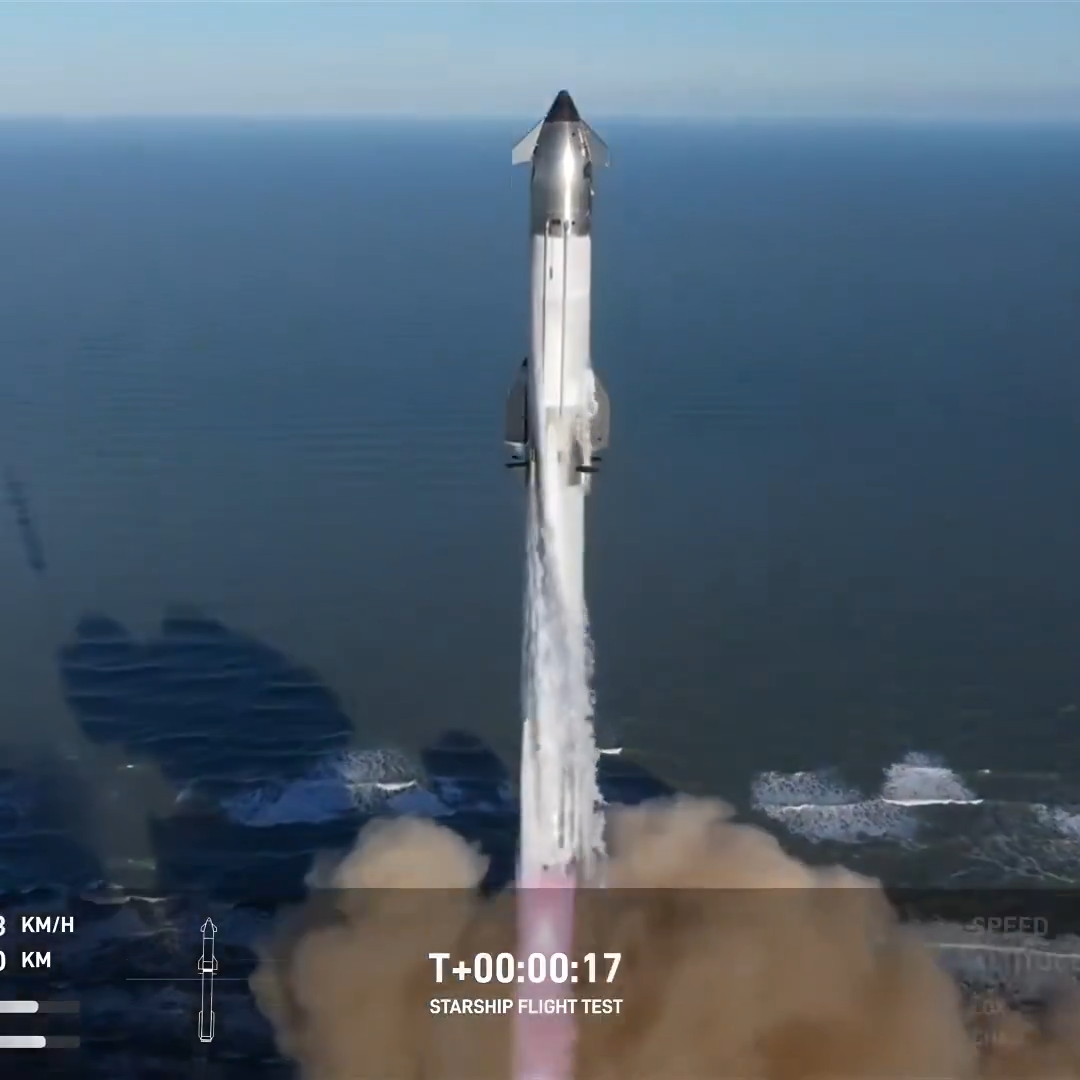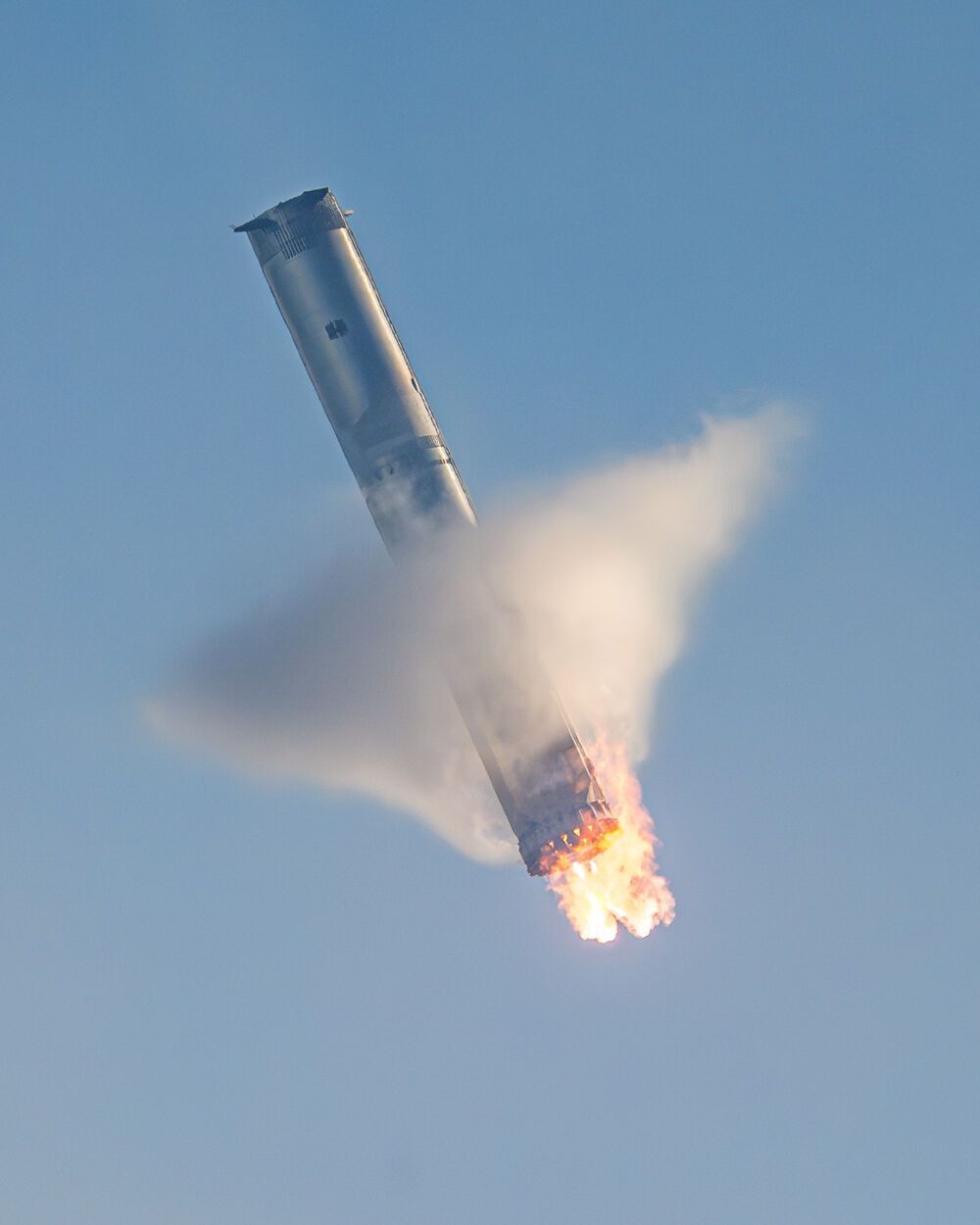News
The Starship rocket exploded during a test flight: Elon Musk announces oxygen leak
Elon Musk's SpaceX has launched its Starship megastar for the seventh time, lifting the 123-meter-tall reusable vehicle into the air from its Starbase in South Texas. The spectacular launch ended with the equally spectacular return of the rocket's giant first-stage booster, known as Super Heavy, back to the launch tower using special handles called "chopsticks."
However, the overwhelming success of the successful launch was overshadowed by the explosion of the Starship's upper stage, which literally fell apart in midair 8 minutes after takeoff. SpaceX called the failure a "quick, unplanned disassembly" on its X network page, and Musk said there was an oxygen leak, AP reports.
"Starship experienced a rapid unplanned disassembly during ascent. Teams will continue to review today's flight test data to better understand the root cause. Today's flight will help us improve Starship's reliability," SpaceX said in a post on X.
All six of the Ship Raptor's engines fired during the ascent of the stage, "but as we were nearing the end of the ascent, we saw the engines shut down on telemetry, and we have since lost contact with the ship," explained SpaceX communications team member Dan Huot, who confirmed that the device was lost.
"According to preliminary data, we had an oxygen/fuel leak in the cavity above the ship's engine firewall that was large enough to create pressure that exceeded the capacity of the vent," Elon Musk wrote on X.
He added that "in addition to the obvious double checking for leaks, we will add fire extinguishing equipment to this volume and likely increase the area of the vents."
According to SpaceX's plan, the new modernized rocket model was to fly most of the way around the world and then gently fall into the Indian Ocean off the west coast of Australia about 66 minutes after launch, as it did during the three previous Starship launches, Space.com writes.
However, unlike previous launches, about 17.5 minutes after liftoff, the upper stage was supposed to deploy 10 simulated satellites similar in size and weight to the new version of SpaceX's Starlink broadband spacecraft. However, Starship did not make it that far.
However, the rocket's explosion created an incredible fireworks display of brightly colored falling debris. "Success is uncertain, but entertainment is guaranteed!" Elon Musk wrote on the X network and posted a video of the unplanned sky show.
As a reminder, the previous six Starship test flights took place in 2023-2024. SpaceX has developed the largest and most powerful rocket ever created to help humanity settle the Moon and Mars.
As Musk's company plans to improve the Starship as much as possible this year, we will see several more test flights of this super-powerful rocket in 2025, experts say.
Only verified information is available on the OBOZ.UA Telegram channel and Viber. Do not fall for fakes!






























